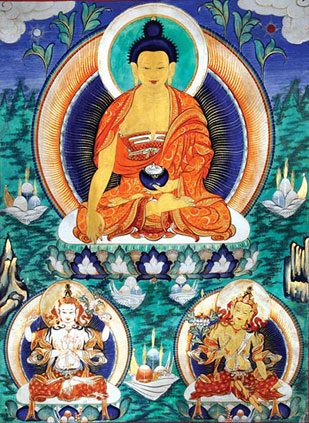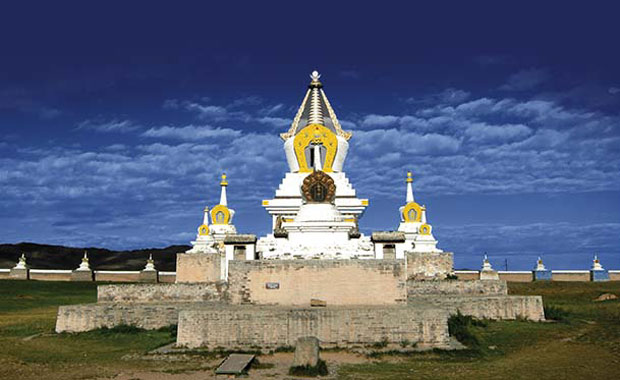“Spiritual Neighbours and Strategic Partners”

Likewise Mongolians 25 years ago got rid of authoritarian regime with single political party and embarked on path of twin transformations such as parliamentary democracy and market economy without broken single window-pane.
These traditional ties between the people of our two countries grew into formal state to state relations when our two nations fought and regained their respective independence and sovereignty. Mongolia and India established diplomatic relations on December 24, 1955. Presently, we are to mark the 60th jubilee as yearlong event on both sides.
Mongolians and Indians are spiritual neighbours those sitting on the northern and southern edge of the Buddhist Asia. Despite geographical distance we have been intertwined with ancient bonds of history, culture and religion which turned into solid basis of the state to state official diplomatic relations. This year we are contemplating to mark this sixtyth anniversary of these relations as as year long event.
We mongolians respect India as sacred land of Lord Buddha and source of wisdom and knowledge. Travelers of ancient past note that the mongolian monks studied in Nalanda University. This spiritual tie is also another basis of our close cooperation. I am pleased that the Government of India has announced its readiness to accept the Mongolian youths to this ancient university. Mongolia and India have contributed a wide array of arts, literature, poetry as well as research works to the oriental culture which are worth to be introduced to our young generation.
We in Mongolia know the teachings of Swami Vivekanand, who said, “What are our thoughts are who we are so take care about what you think. Words are secondary and thoughts are live and travels far.” “You have to grow from the inside out. There is no teacher but your own soul”. “Neither money, nor name or fame pays but character cleaves through adamantine walls of difference”. We pass them on to our youngsters generation to generation and saying that “You ought to know thoughts in order to know the men.”
“Check yourself being among the people and check your thoughts while being alone”, “Sight is blind whenas thoughts are blind”. “The best form of wealth is knowledge which is better”.
The Great Genghis Khan also known as Chinggis Khan, founder of the Unified Mongolian state said that winning of heart and mind is the way to govern the bodies. Thus, even in 13th century, the Mongols appreciated and respected the diverse cultures and civilizations. So instead of discriminating or conflicting with them, the Mongols used to co-exist and debate with all the major faiths in their respective temples, monastries, mosques and ashrams, as Marco Polo had noted.











Comments.